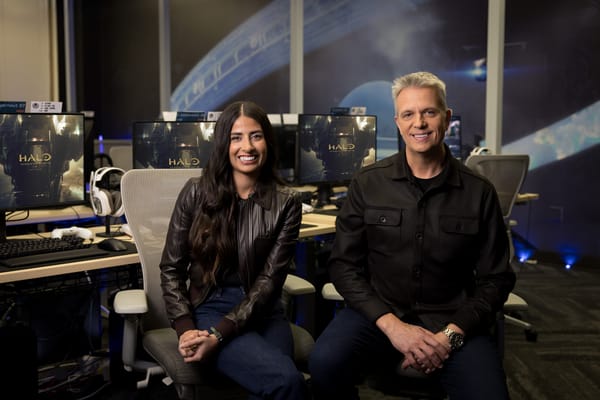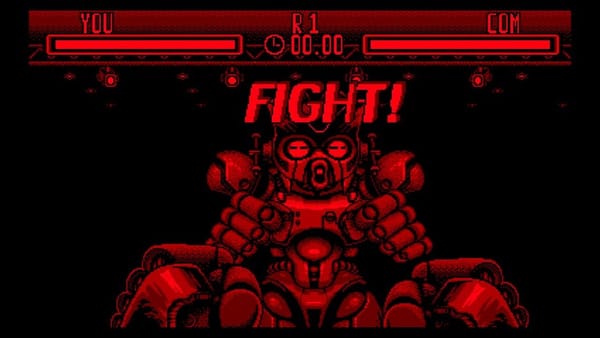#135: Heavy meta
Finally, a glimpse of what the metaverse really means: a bunch of blameless people becoming suddenly unemployed.
Over the past year or so a swathe of big-tech titans have nailed their futures to the mast of the metaverse. Yet none of them has thusfar been able to precisely define what the metaverse will look like, or involve, beyond lots of vaguely worded fluff about brands and communities. It all continues to whiff of the same sort of rapaciously capitalist ground-floorism that brought you NFTs, backed up by somehow even less in the way of substance. This week, however, we’ve had a rare glimpse at just what the metaverse means. And it means: layoffs! Job losses for all! Well, all the little people, anyway.
In the past few days Niantic and Unity, recent metaverse pivoters both, have given their headcounts a significant trim. Niantic, creator of Pokémon Go and a number of other games that are a bit like Pokémon Go but nowhere near as successful as it, has let go 85 to 90 staff, amounting to around 8% of its workforce. Engine maker Unity, meanwhile, gave empty cardboard boxes and a security escort to some 200 people — around 4% of its total.
Now, obviously both these moves need to be placed in the context of the global drop in tech stocks over the course of 2022. Unity’s share price has fallen by over 70% so far this year, including a drop of almost 40% in a single week when it missed its financial forecasts in May. As a public company Unity naturally has to be seen to doing something in response to this sort of thing, and as we all know it is those on the front line who usually pay the price.
Unity, for all its apparent success, has posted a loss in every single year it has been in business. CEO John Riccitiello is never going to carry the can for any of it. He was never going to admit that, ah, perhaps I shouldn’t have spaffed $1.6bn on Weta, and maybe dropping $320m on Parsec amid the gathering clouds of an economic crisis was a mistake. Nah. Just put out a memo saying things like “sharpen our focus” and “reallocate teams”, sit tight until the next shareholder meeting, and start making plans for your next ivory backscratcher. T’was ever thus. So inured is the tech industry to this rhythm of boom and bust, bull and bear, and hire and fire that today TechCrunch published the headline “When do layoffs matter? Trick question — always,” as if it were the product of some grand revelation.
Things are a little different for the privately owned Niantic. The VC community has no problem pushing the trap-door button on founding CEOs whose best days are behind them, and one imagines Niantic boss John Hanke is studiously checking the floor beneath him before he sits down these days. His company has made five acquisitions in the last year or so. Last November it raised $300m in a round that valued it at $9bn — almost double the valuation after its previous raise — specifically so it could do metaverse things. Yet while Unity’s layoffs are a response to its recent poor performance, Niantic’s is being positioned at protecting itself from a future one. In an email to staff Hanke said cost-cutting was necessary to prepare the company for “economic storms that may lie ahead.”
Sure, things look bleak out there, with western governments pumping interest rates in a bid to stave off a surge in inflation. There is talk of recession. There’s a war on, and all that. But I would argue that the worst for Niantic may already be behind it. If there was ever an “economic storm” for Hanke and co it surely landed in the pandemic, when lockdowns and stay-at-home orders presented an existential threat to a company whose entire business was built on games that needed to be played outside while moving around, ideally with other people. Covid is hardly over (a dear friend is labouring under its effects as I type — get well soon, old stick) but I think it reasonably safe to say that we are over the hump of it. Yet only now does Niantic see dark omens in the tea leaves. Curious timing indeed.
From my admittedly distant perspective, Niantic’s problems seem to be of its own making, rather than being driven by market forces or an impending economic crisis. It has never been able to recapture the success of Pokémon Go, and its folly was in the assumption that it ever could. It believed that the game’s success was not just repeatable but reskinnable — as if it was Pokémon that made Pokémon Go a hit, rather than its gameplay innovations, and all it needed to do was make the same game again with a different IP plastered over the surface. It hoovered up more big licences: Harry Potter, Pikmin, Catan, a Transformers game that was in soft launch until it was one of several projects canned alongside this week’s layoffs. Niantic looked at the lightning it had somehow bottled and thought, right, better get some more bottles. That is rarely how this stuff works.
With all that in mind it’s easy to be cynical about Niantic’s pivot to the metaverse, which it announced alongside that $300m raise last November. But I can sort of see the sense in it. Earlier this week I spoke to a developer pal who, while recognising that VR hasn’t taken off as expected, remains convinced that AR is going to be huge. It seems far more likely to me that, to the extent that the metaverse ever becomes a thing, a mix of the real and virtual world is going to be far more appealing to the masses than a clunky, isolatory VR headset. And Niantic has a real head start in this department, having made the biggest AR success story games have yet seen (and perhaps ever will). The metaverse, whatever it is, has come along at just the right time for Hanke. It has given him justification for cancelling projects that he probably shouldn’t ever have kicked off, and a way to keep the money flowing and the investors off his back.
So, two very different situations. But of course the results are always the same: workers paying the price for their employer’s miscalculations, the multibillion-dollar companies to whom they lent their talents proving not so safe a bet as they initially appeared. The people who wield the power, who make the decisions and the mistakes, walk safely away, satisfied in how they have protected their businesses from “economic storms that may lie ahead” by throwing a few hundred people right into the eye of them. On they march to the next funding round, the next acquisition, the next quarterly or annual loss and their next payday, entirely unburdened by guilt or regret for those they have sacrificed along the way. Nice work if you can get it, I suppose.
MAILBAG!
- “GDQ week, best week, hype!” writes Shana, all in a lather, in response to Monday’s ode to speedruns. “We have the stream on the TV all day long, whether we're watching it or not, it's become a tradition. It's the background noise in the house for the week. If we're doing recommendations, my favourite is the Amy run by FoldableHuman at SGDQ 2018. It's just so good, so entertaining, 10/10!” Oh hey, that’s Dan Olsen, maker of the incredible NFT-dismantling YouTube doc Line Goes Up! Not heard of this one. Let’s give it a spin.
MORE!
Hit Points regrets to report that The Gamers Are At It Again. Ron Gilbert has said he will no longer discuss his Monkey Island sequel online after being assailed with personal attacks by babies who don’t like the game’s artstyle. Estelle Tigani, a cinematics producer at Sony Santa Monica, then revealed she had been sent explicit images by people demanding she tell them the release date for God Of War: Ragnarok. Hit Points and Cory Barlog do not often see eye to eye, but the God Of War head honcho’s response to all this — “Show some fucking respect” — rather sums it up. This was almost today’s main story but I just couldn’t face it, sorry. This whole scene is fucking rotten sometimes.
In brighter news, a Nintendo superfan spent $40,000 on company stock so he could attend a shareholder meeting and ask when we’re getting a new F-Zero. I mean, look. This is absolutely godlike behaviour. (If you want to read Nintendo president Shuntaro Furukawa’s response, head over to VGC. It is too boring for me to even bother copy-pasting.)
Game Pass streaming is now available via a native Xbox app on Samsung’s 2022 range of smart televisions. Jolly good. Hit Points has said all this before but it bears repeating: it is through stuff like this — native apps, HDMI streamers and other Things That Aren’t Dedicated Hardware — that Game Pass will truly succeed or fail. This could be the start of something big.
Spellbreak, a sort of wizardy battle royale, is shutting down just two years after launch. Developer Proletariat has been acquired by Blizzard and its 100-person team will now support development of World Of Warcraft.
That Mario + Rabbids sequel looks the absolute business.
Finally, a shout out for Hit Points chum Kirk McKeand, whose book on the history of stealth games, cannily titled The History Of The Stealth Game, launches in October. I’ve read a little bit of it and while the title might suggest one of those tossed-off compendiums that’s basically a printed list feature with a spine, this is in fact a deep, interview-led, wonderfully written genre love letter with a foreword from Arkane’s Harvey Smith. Good. You may read an excerpt and find various international pre-order links here. Go!
There you go! This week at Hit Points HQ: a Dad with a twisted knee, a sad dog who has been insufficiently exercised as a result, and a four-year-old who has decided that scarlet fever is so last month and has decided to give tonsillitis a whirl instead. I promise we do look after him, you know. I seem to remember his brother being constantly ill at that age as well. Ho hum.
Hit Points is going to stick to this twice-a-week schedule for a little while, publishing on Tuesday and Friday throughout July, unforeseen megatons notwithstanding. There are a few reasons for this (thank you so much for asking). We’re in a traditionally quiet time for news; I did two Max HP interviews this week and need to get one written up for paying subs asap; I am pleasingly busy with consulting work; and I should probably bake in some contingency for whatever vile pestilence the children plan to bring home next.
Have a wonderful weekend, whatever it holds, and I shall see you all next week. Please click some buttons for me in the meantime. Cheerio!





